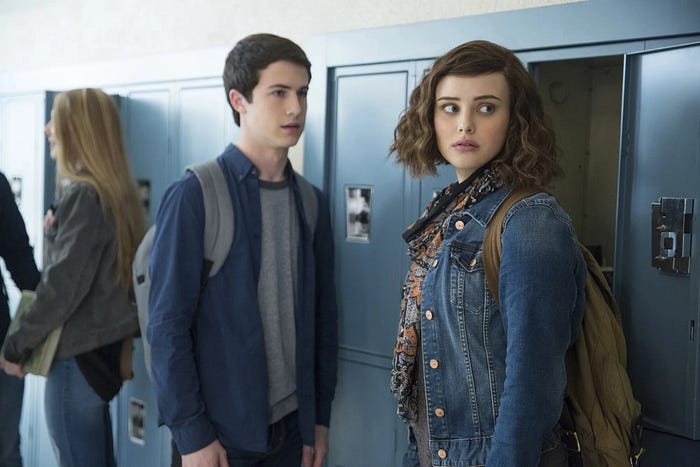Smoking in Movies, and the Difference Between Depiction and Endorsement

As time has worn on in our evolving culture, certain tropes and elements are becoming increasingly forbidden from entertainment. Most of them are for good, whether it'd be racist caricatures or comedic depictions of sexism and related violence against people, especially young women. However, the current environment of social media — operating in line with the cultural zeitgeist and modern youth culture — has become increasingly militant towards more complicated forms of storytelling and portrayals of archaic social norms, even in the context of history or modern characters that behave and do things that aren't socially acceptable.
Actor Jacob Elordi fought with Netflix over the right to depict his character in the studio's two Kissing Booth films — Elordi's breakout role before his prominent supporting role in HBO's Euphoria — as a smoker. "I remember saying, 'He smokes in the book. I need to smoke. He needs to have cigarettes. He's a bad boy,", Elordi said in his August 8 cover story with GQ. "I was like, 'This is bulls**t!' I remember going to war for it," Elordi continued. "I was like, 'Are we lying to the f***ing millions of 14-year-olds out there? This guy smokes nicotine. It says here on page four — look!' I imagine people were just like, 'Jesus f***ing Christ. Is this guy serious?'"
Due to years of stigma over the depiction of smoking and the public battle to prevent children and teenagers from becoming addicted, literary or film characters who are traditionally known for smoking have been prohibited from doing so on the silver screen, with Colin Farrel's Penguin in The Batman and Emma Stone's Cruella Deville being prime examples. While it might make sense in the context of Disney's usual brand of family-friendly content, this puritanical stance against any sight of a widespread and historical lifestyle choice in our world onscreen has always been priggish.
The logic that the mere depiction of smoking is an automatic endorsement regardless of context would cause filmmakers to be more dishonest and sanitize their films, especially if they're telling stories within a historical context. If filmmakers are making a period piece, is every character that would smoke now required to chew gum and toothpicks instead of cigarettes and pipes? If a Stand by Me-esque period film refrained from the sights of people, let alone teenagers, smoking, that'd lead to accusations of historical inaccuracy. Critics can't have it both ways.
Suppose filmmakers and studios were to give absolute credence to the desire to keep entertainment open and pure. In that case, they'd need to stop depicting action or violence, drug use, alcohol consumption, profanity, etc.
Like any prominent studio, Netflix's hypocritical business practices are not new news, but if smoking is to be banned, then why not consider banning depictions of heinous acts against teenagers in shows like 13 Reasons Why, some that shouldn't even be described? (This isn't even touching on how that series capitalizes on a young adult novel by exploiting young viewers and stereotypes of teenagers with an overwrought, pseudo-intellectual drama that trivializes suicide and is little more than a sensational mystery in the vein of Pretty Little Liars.)

I sense that this issue of depiction and endorsement, not merely in the case of the Kissing Booth films, is a symptom of the stigma surrounding adult drama films (or that dreadful buzzword, "Oscar bait"). Suppose any film dares to venture into uncomfortable themes or taboos. In that case, it's automatically considered by specific viewers to be inadequate and unworthy of artistic evaluation—even if it condemns the things, it's accused of fostering. (Prominent examples include Forrest Gump, The Last Duel, Licorice Pizza, Martin Scorsese's filmography, etc.)
While filmmakers and storytellers need to practice business and engagement with the film industry and the moviegoing public in good faith, they're not obligated to be role models for every possible viewer of their art. While consumers and filmmakers need to remain concerned and critical of how certain people are defined and uphold how much representation matters, not every character — including protagonists — needs to be a morally upright role model for children.
Not every film and series owes us uncomplicated stories of clear-cut good versus evil. The opposite of this could be one factor as to why 2021's Spider-Man: No Way Home triumphed at the box office over dramas like West Side Story, The Last Duel, and The Tragedy of Macbeth because viewers can be treated to an IP film with characters they've already grown to care about. They don't have to be challenged with anything potentially offensive (let alone thought-provoking on a different level).
Films from original screenplays and prestigious adaptations of novels, often aimed at more adult audiences, are being released yearly and outnumber sequels and superhero films. They deserve the best of support from the public and dedicated film fans. Why should we let something as trivial as a nasty boy teenager lighting a cigarette get in the way?
In an interview with Variety, Penguin actor Colin Farrell said it best: "I fought valiantly for a cigar. At one stage I said, 'I can have it unlit! Just let me have it unlit.' They were like, 'No.' [As if] a bunch of 12-year-olds are going to start smoking Cuban cigars because [the Penguin is smoking cigars in a movie.]"







